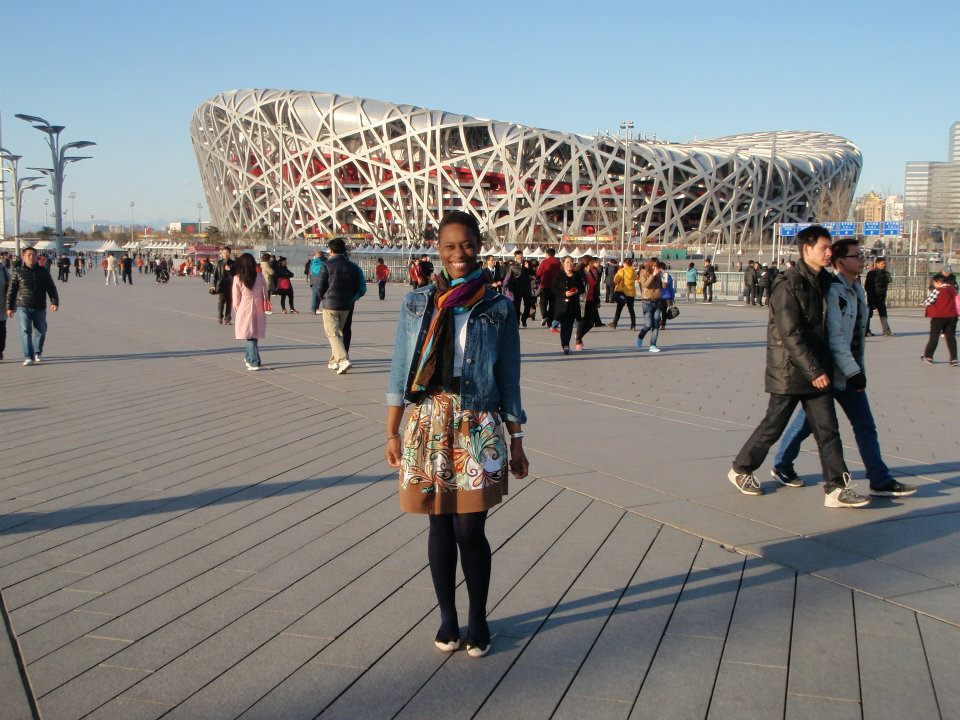“The life in China was not as I thought it would be”
November 3 For two weeks last summer I spent nearly every day in Guangzhou’s African enclave, listening to the women’s stories of migration, writes Leigh-Ann Worrell, 25, a Commonwealth Correspondent from St. Thomas, Barbados. One of the overriding themes was that of desperation.
For two weeks last summer I spent nearly every day in Guangzhou’s African enclave, listening to the women’s stories of migration, writes Leigh-Ann Worrell, 25, a Commonwealth Correspondent from St. Thomas, Barbados. One of the overriding themes was that of desperation.
In the bustling trade areas of Guangzhou, China, an estimated 100 000 Africans from all parts of the continent can be found on crowded streets stuffed with many small store-front businesses.
Living mainly in the Sanyuanli, Xiaobei Road and Guang Yuan West Road areas of this city in China’s southern Guangdong Province, they are involved in various types of trading activity.
Some are temporary merchants in the market haggling for bargains selling jeans, electronics, shoes and counterfeit bags. Others have more permanent economic activities such as logistics and quality control services.
In this interesting and developing story of migration, most of the emphasis is placed on the male narrative – how and why they chose China, as well as how they build trading links.
But while men outnumber women in terms of the Africans who decide to trade and live in China, I wanted to focus on some of the female narratives. For two weeks last summer, I spent nearly every day in Guangzhou’s African enclave, listening to the women’s stories of migration.
One of the overriding themes was that of desperation. The desperation of the situation back home; the desperation of feeling friendless in China; and for some the desperation that finally leads them down the path of prostitution.
These are some of the stories they told.
Shanna, 30, Sudan: “Originally, I had not planned to stay in China, just to buy goods in bulk and ship them back home. But then I met my husband while I was here on a trip, and decided to come back here so we could live together.
“But the life in China was not as I thought it would be. I only have my husband, but no real friends. I cannot speak Chinese, and I do not have a permanent residence, so every few months I have to go to Hong Kong and renew the visa.
“Recently, I have been thinking about going home. This place is not for me; it is a good place for business, but I have nothing here.”
Rina, 32, Cameroon: “I have been doing this “work” (prostitution) for some time now. I used to work in other countries before I came here. When my family asks about my work, I tell them I found a job in different things. I cannot tell them what I am doing.
“People tried to tell me that I should stop, but I cannot. If I stop, how will I eat? How will I pay my rent?
“I meet men around the markets and other places, and I usually get around 300 Renminbi from each man (around US 48). I plan to stop and go back home to my children, but not any time soon.”
Sally, 25, Zanzibar: “Women are forced into prostitution when they come to China. They come and think there is good business here, and that everything will be good here, but then it does not work out. So in order to make the money to fly back home, they take some money from the men for sex.
“At first, they say it is only for a short time, and then they cannot stop. Some of my friends even choose to have many boyfriends, and then the men will give them money.
“I work here at this company because it was the only thing I could find. I just want to make enough money to make up money for a ticket.
“When I do that, I will go back home and try to learn a skill to get a good job. I don’t want to come back out here.”
…………………………………………………………………………………………………………………
About me:
“I am a reporter for www.barbadostoday.bb. I am passionate about women’s rights issues, theatre arts and cats. I like hanging out with my friends, live for the beach and (sorta) enjoy cooking. I eventually to work in the gender and development field in any part of the world.”
…………………………………………………………………………………………………………………
Opinions expressed in this article are those of the author and do not necessarily represent the views of the Commonwealth Youth Programme. Articles are published in a spirit of dialogue, respect and understanding. If you disagree, why not submit a response?
To learn more about becoming a Commonwealth Correspondent please visit: http://www.yourcommonwealth.org/submit-articles/commonwealthcorrespondents/




